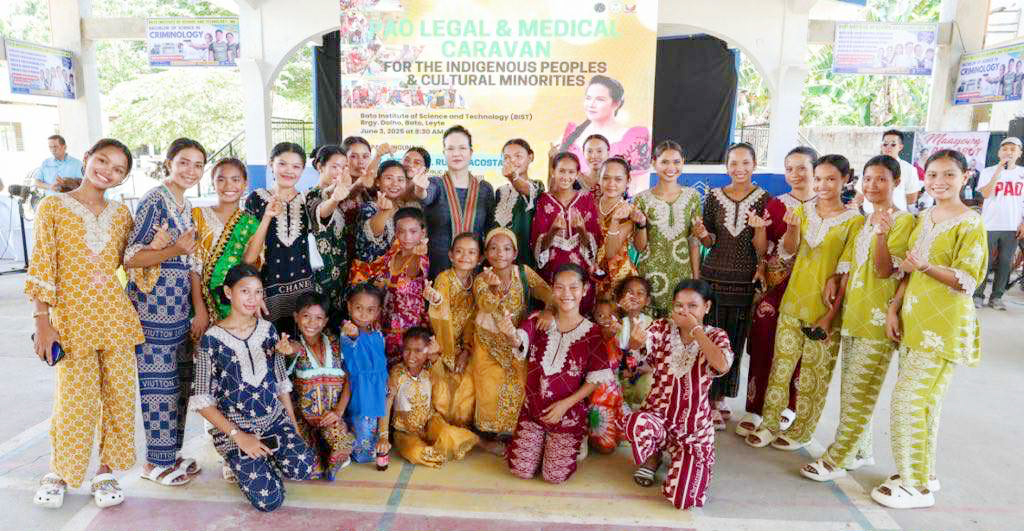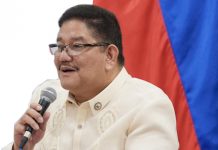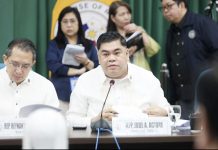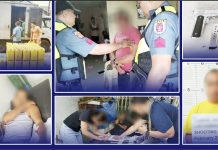
BATO, Leyte– More than a hundred members of the indigenous Badjao community in Brgy. Dolho, this town, received crucial medical, legal, and livelihood support during a multi-agency outreach program spearheaded by the Public Attorney’s Office (PAO) on June 3.
Leading the PAO Legal and Medical Caravan was Chief Public Attorney Persida V. Rueda Acosta, DSD, who was joined by a team of doctors from Manila and lawyers from PAO Eastern Visayas. The event forms part of PAO’s nationwide initiative to extend vital government services to marginalized indigenous peoples (IPs) and cultural minorities.
“We go to the farthest corners of the country to bring essential government services closer to the people who need them most,” Acosta told the 110 Badjao beneficiaries, which included children, pregnant women, and senior citizens.
Several members of the community availed of legal assistance, particularly for the preparation of affidavits to support late registration of births.
According to tribal coordinator Vanessa S. Sabrani, many Badjao women still give birth traditionally on their island, making birth registration difficult due to poverty and isolation.
“We are truly grateful that PAO came to us. Some children cannot enroll in school because they have no birth certificates. This visit helps us start that process,” Sabrani said in vernacular. The IPs in Bato reside on an island, separate from the town proper.
Free medical consultations and medicines were also provided, benefitting both children and elderly members of the community. The caravan was made possible through PAO’s collaboration with several government agencies.
Acosta personally led the ceremonial distribution of almost P100,000 worth of fishing gears from the Bureau of Fisheries and Aquatic Resources (BFAR) to 42 selected Badjao fishermen.
Their community relies heavily on fishing, pearl diving, and marine activities for livelihood.
In addition, the Department of Agriculture (DA) provided high-value crop seedlings and farm tools, while the Department of Environment and Natural Resources (DENR) distributed native tree seedlings such as narra, kalumpit, and toog to promote sustainable upland development.
The Department of Social Welfare and Development (DSWD) allotted P1.6 million for the distribution of food assistance, with each validated beneficiary receiving P10,000 in aid through DSWD’s Cash-for-Food program. Additionally, the agency extended the same assistance to fifty (50) more Badjao individuals who were unable to attend the event. Rice and food packs were also given to the participants through PAO.
“We in the government are working together to provide what is rightfully due to our fellow Filipinos—especially to our indigenous brothers and sisters. We want them to feel that they are part of the Bagong Pilipinas,” Acosta said.
Acosta was joined by incoming town mayor Bryan Nile A. Gertos, who represented his father, incumbent Mayor Nathaniel B. Gertos, along with several local officials at the Bato Institute of Science and Technology (BIST) where the event was held.
Deputy Chief Public Attorney and concurrent Director General of PAO’s Forensic Division, Dr. Erwin P. Erfe, also led the medical team during the caravan. The Chief Public Attorney emphasized that the PAO will continue to conduct outreach programs for both IPs and PDLs nationwide, in line with the office’s mission to deliver access to justice for the indigent and marginalized members of society.
(ALVIN P. CARDINES)



